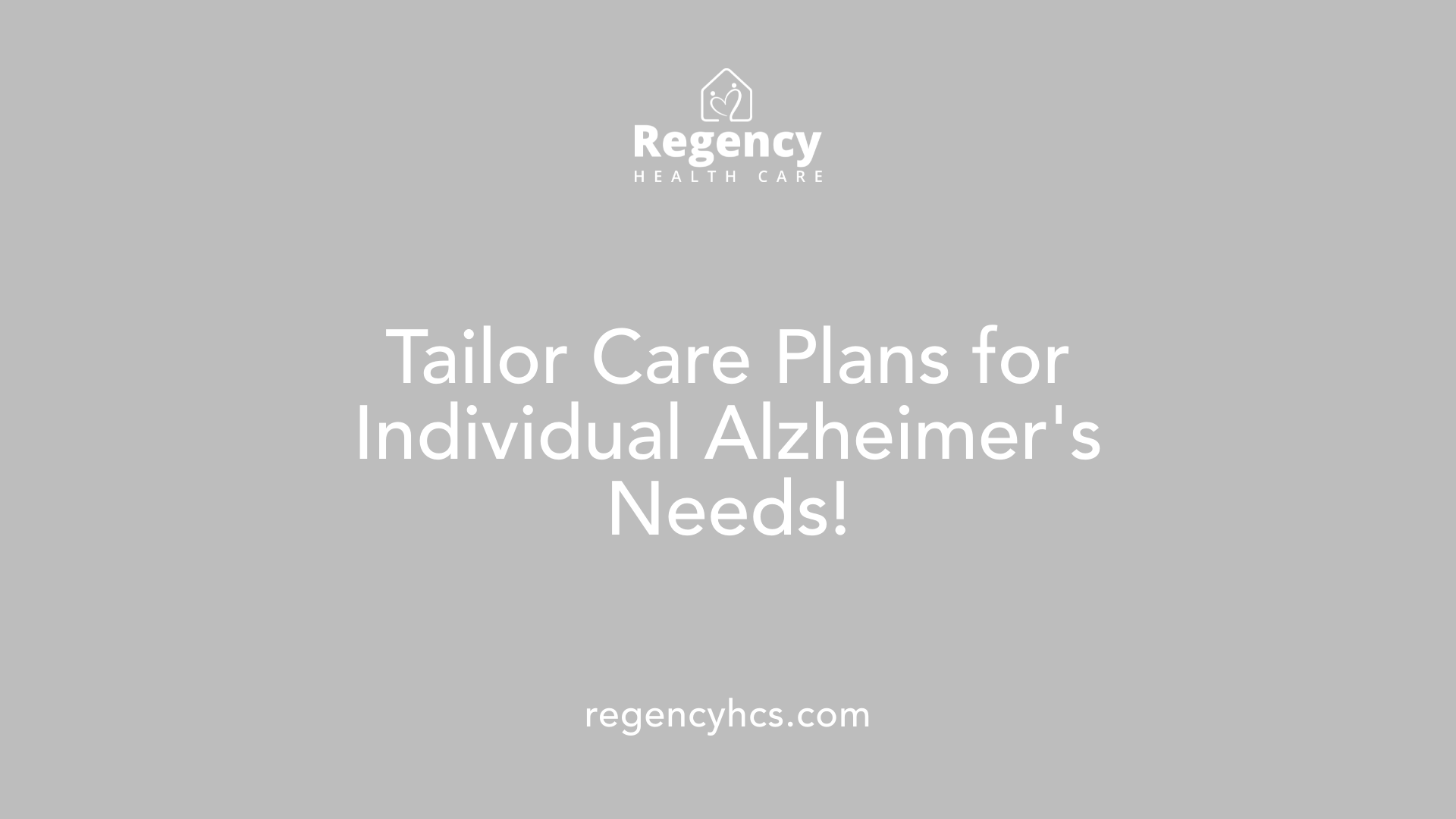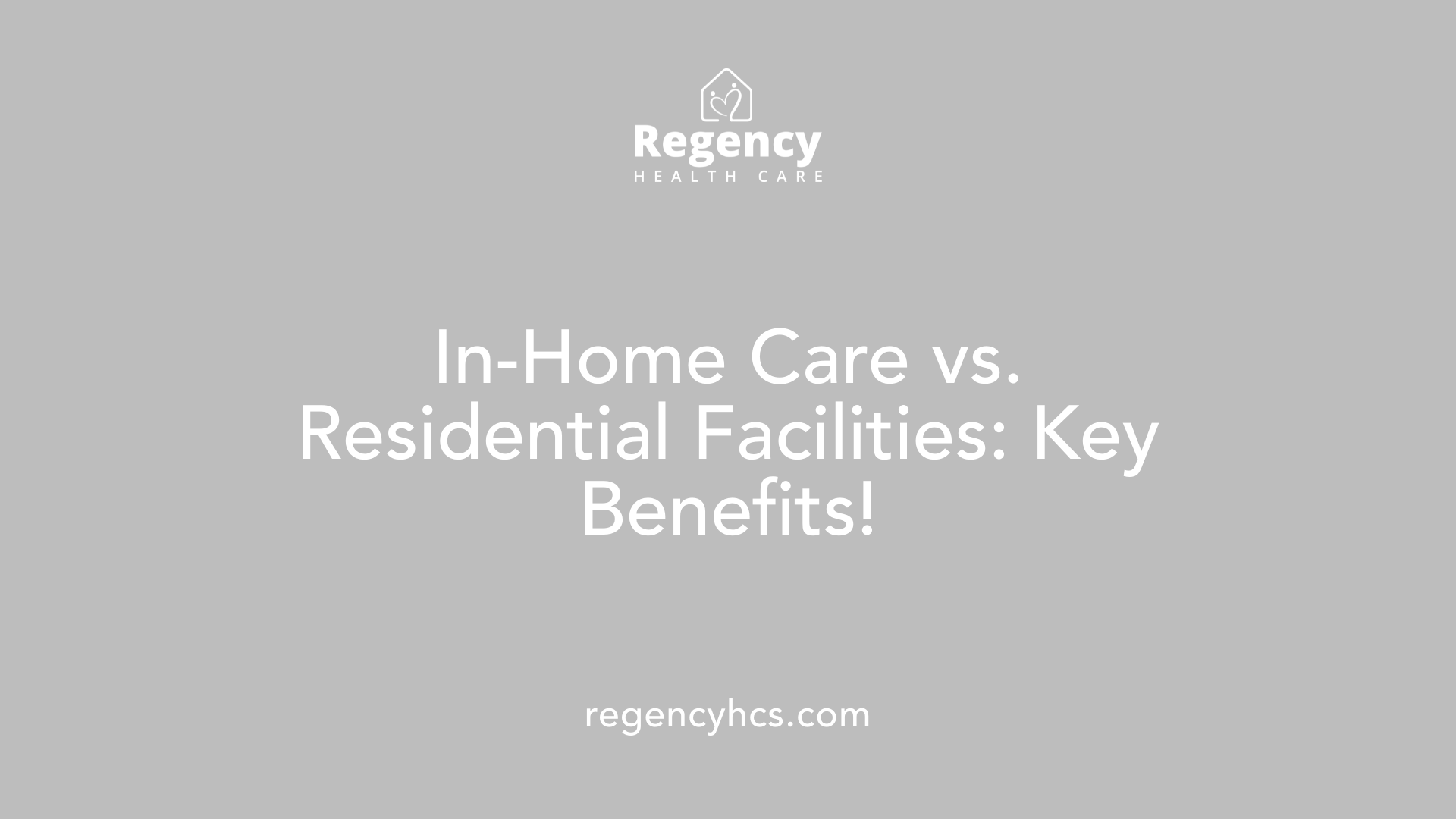Introduction: Easing the Alzheimer's Care Pathway
With the increasing prevalence of Alzheimer's disease, finding effective care solutions has become more essential than ever. Home health care is emerging as a preferred option for many families, providing a compassionate and safe environment for individuals impacted by this condition. This article explores various aspects of in-home care for Alzheimer's patients, addressing their unique needs and outlining potential resources for caregivers.
A Comprehensive Overview of In-Home Alzheimer's Care

Types of in-home care services for Alzheimer's patients
In-home care provides a unique opportunity for Alzheimer's patients to remain in their familiar environments while receiving necessary support. Here are the common types of services available:
- Companion Services: Offer supervision and engage patients in recreational activities, promoting social interaction.
- Personal Care Services: Help with daily living activities, including bathing, dressing, and eating.
- Homemaker Services: Manage household tasks such as meal preparation and cleaning, ensuring a comfortable living space.
- Skilled Care Services: Provide medical assistance from licensed health professionals for more complex health needs.
Each service can be tailored to meet the unique requirements of the patient, ensuring their comfort and safety at home.
Benefits of home-based care
Caring for Alzheimer's patients at home has multiple advantages. Such care fosters a sense of security and reduces confusion by allowing patients to stay in their familiar environments. Additionally, in-home care also provides:
- Personalized Attention: Care providers can cater to the specific needs and preferences of the individual.
- Improved Independence: Support helps patients maintain autonomy in their daily activities.
- Reduced Caregiver Stress: By alleviating some responsibilities, in-home care can lessen caregiver burnout.
Ultimately, with the right support and resources, home care enhances the quality of life for Alzheimer's patients, contributing to better emotional well-being and overall health.
Can Alzheimer's patients be cared for at home?
Yes, Alzheimer's patients can be cared for at home, and many do so successfully with the right supports. Research indicates that the majority of the 5.8 million individuals with Alzheimer's in the U.S. live in their own homes, though caregivers often face significant challenges, with 97% to 99% reporting unmet care needs. Home safety is paramount, as over 90% of dementia patients' needs relate to this aspect, and practical modifications like grab bars and non-slip mats can enhance safety. Additionally, dementia care coordinators can play a vital role in addressing legal, safety, and medical needs, leading to better outcomes for both patients and caregivers. Overall, with appropriate resources and planning, home care can significantly improve the quality of life for Alzheimer's patients.
| Service Type | Services Provided | Benefits |
|---|---|---|
| Companion Services | Supervision and companionship | Reduces loneliness, improves engagement |
| Personal Care Services | Assistance with daily activities | Enhances independence |
| Homemaker Services | Meal preparation and housekeeping | Creates a safe living environment |
| Skilled Care Services | Medical assistance from licensed professionals | Addresses complex medical needs |
Understanding the Financial Landscape of In-Home Alzheimer’s Care

What are the costs of in-home dementia care?
The costs associated with in-home dementia care can vary widely, mainly influenced by location and the complexity of care needs. On average, the national median cost for in-home care is approximately $30 per hour, with rates ranging anywhere from $21 to $50 per hour depending on the services provided.
For a full-time caregiver working around 44 hours per week, families can expect a monthly expense of about $5,720. If care is part-time, say for 15 hours a week, the monthly cost would be around $1,950.
Apart from caregiver fees, families may encounter additional expenses, especially for necessary home safety modifications, which can average around $9,500. Further costs may arise from medications and other essentials needed for patient care. It's important to note that Medicare generally does not cover costs associated with in-home dementia care, making it crucial for families to plan for these out-of-pocket expenses.
What financial assistance options are available?
Families seeking support for in-home care services have several options to explore. While Medicare does not cover typical in-home care, specific health-related aspects of care might be eligible for assistance.
Additionally, Medicaid may offer programs to aid with costs for eligible low-income individuals, often varying by state. Some states also provide cash assistance programs that enable seniors to directly fund their in-home care services, enhancing flexibility.
Moreover, organizations like the Alzheimer’s Association can connect families with local resources and potential financial aid programs. Websites like BenefitsCheckUp can also help identify assistance programs that reduce the financial burden on families managing Alzheimer's care.
Medicare and Home Health Care: What Alzheimer's Patients Need to Know
Will Medicare pay for home health care for dementia patients?
Yes, Medicare will pay for home health care for dementia patients if certain conditions are met. Specifically, patients must obtain a doctor's order to initiate home health services. They also need to be classified as homebound, meaning they require assistance to leave their home. Additionally, they must require intermittent nursing or therapy services to qualify for coverage.
Medicare offers comprehensive support through its two parts: Medicare Part A and Part B. Part A covers up to 35 hours per week of home health care for eligible patients, which may include skilled nursing, physical therapy, and other essential services.
Moreover, Medicare Part B provides coverage for cognitive assessments and related services that can assist caregivers in managing Alzheimer’s care.
It’s crucial to highlight that while Medicare covers various in-home care services, it does not provide coverage for long-term custodial care. Families may need to seek alternative funding sources, such as Medicaid, to cover these additional costs.
What are the eligibility requirements for Medicare home health care?
Eligibility for Medicare home health care is straightforward but comes with specific criteria:
- Doctor’s Order: A physician must prescribe home health care services.
- Homebound Status: The patient must be considered homebound, meaning they have difficulty leaving home without assistance.
- Need for Services: The patient must require intermittent nursing or therapy services, which can include skilled nursing care, physical therapy, or occupational therapy.
Understanding these requirements is vital for families navigating the care options for their loved ones with Alzheimer's, ensuring they maximize available resources.
Crafting a Personalized Care Plan for Alzheimer's Patients at Home

Developing Tailored Care Plans
Creating a personalized care plan for individuals with Alzheimer's is essential for addressing their specific needs as the disease progresses. The care plan should involve input from family members and consider the individual’s preferences and history. This collaborative approach helps ensure that the care provided aligns with their evolving requirements, allowing for modifications as needed.
Roles of Caregivers and Family
Family caregivers play a pivotal role in the care of Alzheimer's patients. They can request assessments from local authorities to understand available supports and adapt caregiving approaches accordingly. Moreover, health professionals, including GPs and dementia specialists, provide guidance in establishing a care plan that includes medical interventions and daily living assistance. Families are also encouraged to partake in care conferences to streamline communication with providers, enabling a cohesive care strategy.
In summary, access to diverse support services and active family involvement significantly enhances the quality of life for those living with Alzheimer's.
Empowering Alzheimer's Caregivers with Educational Resources

What educational resources are available for Alzheimer's caregivers?
There are numerous educational resources available for Alzheimer's caregivers that can significantly ease the caregiving journey. Comprehensive guides often provide valuable information on managing daily tasks and addressing the medical challenges associated with Alzheimer's.
These resources underscore the importance of caregiver self-care, highlighting effective communication strategies for engaging with individuals experiencing cognitive decline. Practical advice covers critical areas such as:
- Maintaining home safety: Tips on preventing accidents and creating a secure living environment.
- Establishing routines: The significance of predictable daily schedules for the well-being of Alzheimer's patients.
- Compassionate behavior management: Strategies for responding to challenging behaviors with understanding and patience.
Moreover, caregivers can access information about legal aspects, care options, and methods to promote emotional health for both themselves and the individuals they care for. In essence, these educational tools equip caregivers to navigate the complexities of support while preserving dignity and improving the quality of life for those affected.
Comparing Home Health Care with Residential Facilities for Alzheimer's

Benefits of home care
In-home care offers a host of benefits for individuals with Alzheimer's disease, particularly in enhancing comfort and familiarity. Living in their own homes helps patients feel secure, reducing anxiety stemming from changes in environment. Caregivers assist with daily tasks, including bathing, meal preparation, and medication management, ensuring personalized care aligned with the patient's preferences.
Moreover, in-home care allows for continuous emotional support and cognitive stimulation through familiar activities, significantly improving overall well-being. Studies have shown that coordinated home-based care can lead to better health outcomes, as patients enjoy improved mental health and reduced symptoms of stress.
Comparative analysis with residential care
Comparing home health care with residential facilities reveals distinct differences in care delivery. Residential facilities provide structured environments where trained staff manage daily living activities and specialize in dementia care. Care homes focus on establishing consistent routines, employing techniques to reduce anxiety and confusion through calm communication and engaging activities. They often enhance the environment with safety modifications to prevent falls.
While residential care offers round-the-clock support, it may lead to feelings of disconnection for patients accustomed to their own homes. In-home care respects the individual's autonomy, promoting independence and flexibility in care, which can be crucial as Alzheimer’s patients navigate their changing needs.
In summary, while both care approaches aim to enhance quality of life, in-home care prioritizes personalized experiences, whereas residential facilities focus on structured support environments.
Leveraging Community and Technological Support for Home Alzheimer's Care
What types of support are offered for Alzheimer's patients?
For individuals with Alzheimer’s, there is a vital array of support systems designed to enhance their quality of life. These include both home care and home health care services, providing critical assistance with daily activities and medical needs.
Home Care Services
These incorporate personal help with daily living tasks, such as:- Bathing and grooming
- Meal preparation
- Companionship to reduce loneliness
Home Health Care Services
Often medically oriented, these services include:- Skilled nursing care
- Physical and occupational therapy
- Medication management
This type of care is essential for patients experiencing an increase in medical needs as the disease progresses.
Meal Services
Programs that deliver nutritious meals can help ensure dietary needs are met, thus promoting better overall health.Respite Care
Short-term relief options for caregivers are available, allowing them essential recovery time.Adult Day Care Services
These facilities offer a structured environment with recreational activities and basic health care, providing both care and social interaction.Geriatric Care Managers
These professionals assist families with planning and coordinating care, navigating complex decisions while ensuring that varying needs are addressed.Hospice Services
Focusing on comfort and end-of-life care, these services support families in managing the final stages of Alzheimer’s.
Building a network of community resources and utilizing technology, such as care coordination software and telehealth platforms, can also greatly enhance support. Maintained communication among caregivers and professionals enriches care strategies, ultimately fostering a more supportive environment for both patients and families.
Conclusion: The Path Forward for Home Alzheimer's Care
As the Alzheimer's population grows, so does the necessity for effective in-home care solutions. Understanding the breadth of services available, preparing for associated costs, and leveraging community and technological resources can make a significant difference in managing the disease. These efforts not only support the wellbeing of those with Alzheimer's but also empower their caregivers, ensuring a holistic approach to living and thriving at home with the condition.
References
- In-Home Care | Alzheimer's Association
- Dementia Care: Keeping Loved Ones Safe and Happy at Home
- Working with Care Providers | Alzheimer's Association
- Finding Dementia Care and Local Services - Alzheimers.gov
- Advancing Research on Care Needs and Supportive Approaches ...
- Alzheimer's and Dementia - Illinois Department on Aging
- National Plan to Address Alzheimer's Disease - ASPE - HHS.gov
- In-Home Alzheimer's Care
- Who Should Assess the Needs of and Care for a Dementia Patient's ...

The Impact of Positive Reinforcement in Senior Care Plans
January 17, 2025
Harnessing Positive Reinforcement for Enhanced Senior Care

Mindfulness Practices at Home
January 17, 2025
Discover the art of mindfulness practices at home to cultivate peace and clarity in your daily life. Start your journey today!

Why Physical Therapy at Home is Effective for Stroke Recovery
January 17, 2025
Exploring the Impact of Home Physical Therapy on Stroke Recovery

Support for Autism in Home Care
January 17, 2025
Discover expert support for autism in home care. Tailored therapies and caregiver training for enhanced care.

Access to Elite Medical Specialists in High Net Worth Home Care
January 17, 2025
Unveiling the Benefits of Concierge Medicine for the Wealthy

Financial Planning for Home Care
January 17, 2025
Discover expert financial planning for home care in New York. Navigate costs, programs, and insurance with ease.



